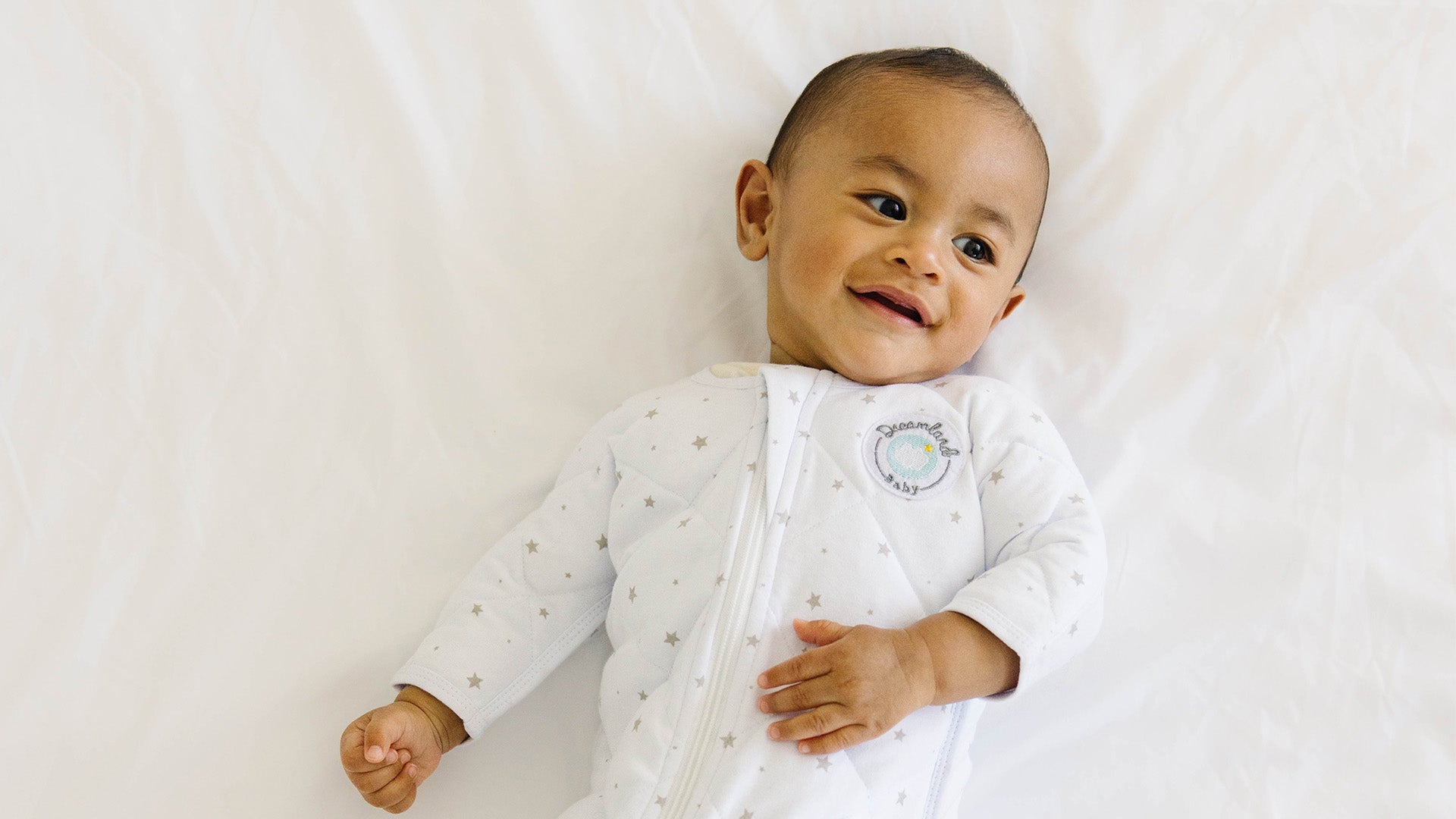Helping Babies Sleep Better While Teething
Growing teeth is just one of the many adorable milestones your baby will achieve in their first year. The side effects of these adorable little teeth, however, aren’t as cute. In fact, they can severely impact your baby’s sleep. As a loving parent you may be wondering how to help your baby sleep while teething. At Dreamland, helping babies sleep is what we do. Cozy up and keep reading to reunite with the good night’s sleep you’ve been dreaming of. Cause if your baby sleeps - that means you can too!
How do I know if teething is affecting my baby’s sleep?
Teething can be a challenging time for both babies and parents, and it is common for teething to cause regressions in baby’s sleep patterns. Here are some signs that teething may be affecting your baby's sleep.

What time of day is teething worse?
Many parents report that teething causes their babies to be more fussy and irritable during the evening and night hours. The exact reason for this is unknown, but there are a variety of factors that may contribute. During the day, babies are often distracted by their surroundings and may be engaged in play or other activities that help to take their mind off the discomfort of teething. At night, however, when the environment is quieter and there are fewer distractions, babies may be more aware of the discomfort in their gums.
Why does teething pain increase at night?
Along with the fact that your baby simply may not be as distracted at night, there are some physical factors to consider, including the following.
Will Tylenol help my teething baby sleep?
It’s not uncommon for parents to turn to over-the-counter pain relievers like Tylenol to help manage their baby's pain. While acetaminophen (Tylenol) can be effective in reducing the pain associated with teething, it's important to use it safely and according to the recommended dosages.
Acetaminophen can greatly help to relieve teething pain and discomfort, which in turn makes it easier for your baby to sleep. However, it is important to remember that medication should not be used as a substitute for other measures to help your baby sleep, such as a consistent bedtime routine or soothing activities. Additionally, if your baby is experiencing significant pain or if you have concerns about their sleep patterns, it’s important to talk to your pediatrician or healthcare provider.
It's also important to remember that overuse or misuse of acetaminophen can be dangerous, particularly in young children. Always follow the recommended dosages and do not exceed the maximum daily dose. If your baby experiences any adverse reactions or side effects after taking acetaminophen, stop using it and contact your pediatrician or healthcare provider.
Does a pacifier help with teething?
While pacifiers may provide some temporary relief from teething pain, they are not specifically designed to address the discomfort associated with teething. However, the pressure of sucking on the pacifier may still help to relieve some of the pressure and discomfort associated with teething.
While there is no one definitive solution to managing teething pain and discomfort, there are several things that you can try to help soothe your teething baby.
Does teething cause a baby to wake up screaming?
Teething can cause some pretty major discomfort, and it’s not uncommon for babies to wake up crying or screaming during the night due to teething-related pain. If you’ve completed your usual checklist consisting of a feed or a diaper change, your baby’s sudden nighttime fussiness may be caused by their tiny teeth migrating in their gums.
How long does teething sleep regression last?
Although your baby’s sleep patterns may feel like a series of sleep regressions in the first year - thankfully, teething is temporary. Teething-related sleep regressions typically last anywhere from a few days to several weeks, depending on the child and the severity of the teething symptoms. You can expect these teething sleep regressions to occur between 4 and 12 months old.


Share:
Ways To Get Your Toddler to Sleep More
5 First-Year Milestones